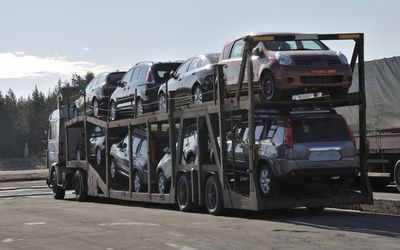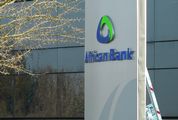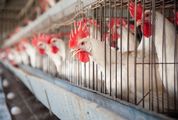Global executives have mixed views on SA’s motor sector
by David Furlonger,
2016-03-16 05:46:13.0
THERE is good news and bad news for SA’s motor industry.
The good news is that global motor industry executives consider SA the second most important emerging automotive market over the next five years. The bad news is that emerging markets as a whole are no longer as important to these executives as they once were.
The latest annual automotive survey by global business consultancy KPMG shows global industry executives consider SA second only to Thailand among emerging markets over the short-to-medium term. That puts it ahead of other high-profile markets such as Indonesia, Turkey and Argentina.
Multinational motor companies continue to invest in SA. Last year, Volkswagen and BMW announced they would spend R4.5bn and R6bn respectively on building new vehicle ranges in SA. Toyota SA is believed to have spent up to R5bn on its new Hilux. Beijing Automotive Industry has announced a R12bn plan to start building cars in SA within three years.
While SA’s raised status in the KPMG survey is welcome, there is a downside. The survey shows that digitalisation and connectivity — the ability of a vehicle and its occupants to be permanently connected to the outside world through the internet and wireless services — are the main preoccupations of executives this year.
Emerging markets, ranked top for the past three years, have been bumped down to fourth place, also behind the development of hybrid and electric vehicles.
SA’s place in the sun may also be delayed by its domestic market. Chris de Kock, CEO of automotive finance house WesBank, predicted last week that new vehicle sales would fall 12% this year from last year, from 617,691 to 543,306.
That would make it the third year in a row that the local market has contracted. Most analysts expect it to bottom out next year, then grow again from 2018.
Gavin Maile, head of KPMG’s automotive practice in SA, doubted that firms would do something that would damage already struggling sales. "That would be a real doomsday scenario. There are too many (economic and political) unknowns to make a prediction on pricing even in 12 months."
According to KPMG, last year’s global figure of 89-million will rise to 92.5-million vehicles this year, then 99-million and 103-million over the next two years.

Picture: THINKSTOCK
THERE is good news and bad news for SA’s motor industry.
The good news is that global motor industry executives consider SA the second most important emerging automotive market over the next five years. The bad news is that emerging markets as a whole are no longer as important to these executives as they once were.
The latest annual automotive survey by global business consultancy KPMG shows global industry executives consider SA second only to Thailand among emerging markets over the short-to-medium term. That puts it ahead of other high-profile markets such as Indonesia, Turkey and Argentina.
Multinational motor companies continue to invest in SA. Last year, Volkswagen and BMW announced they would spend R4.5bn and R6bn respectively on building new vehicle ranges in SA. Toyota SA is believed to have spent up to R5bn on its new Hilux. Beijing Automotive Industry has announced a R12bn plan to start building cars in SA within three years.
While SA’s raised status in the KPMG survey is welcome, there is a downside. The survey shows that digitalisation and connectivity — the ability of a vehicle and its occupants to be permanently connected to the outside world through the internet and wireless services — are the main preoccupations of executives this year.
Emerging markets, ranked top for the past three years, have been bumped down to fourth place, also behind the development of hybrid and electric vehicles.
SA’s place in the sun may also be delayed by its domestic market. Chris de Kock, CEO of automotive finance house WesBank, predicted last week that new vehicle sales would fall 12% this year from last year, from 617,691 to 543,306.
That would make it the third year in a row that the local market has contracted. Most analysts expect it to bottom out next year, then grow again from 2018.
Gavin Maile, head of KPMG’s automotive practice in SA, doubted that firms would do something that would damage already struggling sales. "That would be a real doomsday scenario. There are too many (economic and political) unknowns to make a prediction on pricing even in 12 months."
According to KPMG, last year’s global figure of 89-million will rise to 92.5-million vehicles this year, then 99-million and 103-million over the next two years.























Change: 0.26%
Change: 0.41%
Change: 0.74%
Change: 0.41%
Change: -0.46%
Data supplied by Profile Data
Change: -0.01%
Change: 0.90%
Change: 0.26%
Change: 0.00%
Change: 0.66%
Data supplied by Profile Data
Change: 0.82%
Change: 0.68%
Change: 0.64%
Change: 1.03%
Change: 0.82%
Data supplied by Profile Data
Change: 0.17%
Change: -0.31%
Change: 0.94%
Change: 0.17%
Change: -0.05%
Data supplied by Profile Data